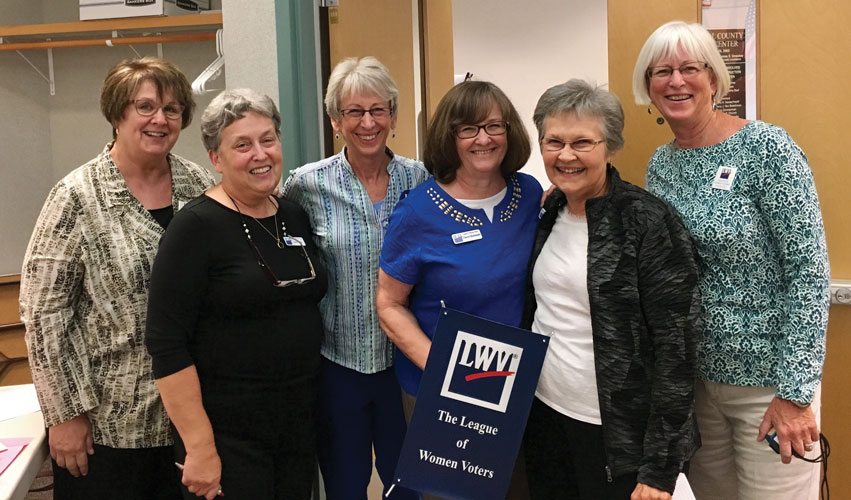
Get your start in politics now!
Our fellow citizens fought and died to give all of us the right to vote and hold public office. Yet for April elections in Peoria, voter turnout is usually less than 20 percent. With that much apathy, it is a wonder that people even run for office.
Why don't people vote? And why don't they run for office? The reasons are myriad: too busy, ill or disabled, not interested, doesn’t like negative campaigning, few contested races, etc. Running for office costs money and requires time, exposure and commitment. It is possible the effort will be unsuccessful, so there is also a fear of failure. "And, after all, what do I know about campaigning?!"
Campaigning for office is a two-way street: candidates offer ideas to voters, while voters ask questions of candidates. There should be questions since city councils, mayors, college trustees, park district trustees and school boards decide how much real estate tax levies are needed and which public services to keep… or cut. How does the informed citizen—who is willing to be criticized while making those decisions—step forward? Usually a friend, a group or an elected official encourages them to run for office.
Political Candidate School
The League of Women Voters of Greater Peoria (LWVGP) decided to encourage citizens to run for office by offering a “school” for political candidates in October, as petitions and paperwork deadlines to get on the spring ballots were in November and December. The spring 2017 election will decide the future of many local offices, including mayor, city council, school board, community college board, park district board and township offices. Eventually, those elected members will comprise much of the pool of candidates for state or national elected offices.
The Political Candidate School was designed for individuals who were considering running for office and those interested in helping a candidate. Classes were geared for both people who have some experience campaigning, as well as those who might do a wonderful job, but may not know where to start. They included information from how to get on the ballot to designing an effective campaign plan, and were taught by people who have either campaigned or been elected themselves. It sounded like a good way to encourage new candidates.
Comprised of three classes, the candidate school took place in partnership with Illinois Central College and the Peoria NAACP—the first candidate classes held by our League since the 1990s, when we partnered with the Peoria Area Chamber of Commerce. “Want to run for elected office but don't know how?” we asked. “Ever thought, ‘I could do a better job?’ Get your start in politics now!” Nineteen people took the class—way more than anticipated.
Tips for a Successful Campaign
The classes covered the campaign process from start to finish, providing a resource list of rules, websites and campaign dates, as well as discussion with nine accomplished politicians/campaigners who’ve both won and lost on the ballot. In addition, a guest journalist talked about how to best communicate with the media. We had a diverse group participating from several different counties. The topics included:
- Deciding whether to run—time commitment to holding office and participating in related meetings; identifying district boundaries and potential voters;
- Getting on the ballot—collecting petition signatures; completing and submitting paperwork on deadline;
- Determining a campaign message and communicating it to voters;
- Creating and implementing an effective campaign plan; budgeting for the real cost of campaigning, along with data access;
- Asking for donations—and what not to spend money on;
- Contacting voters effectively;
- Finding support and including friends, family and volunteers in the campaign;
- Responding to negative/attack ads;
- Getting involved first through someone else's campaign or through political parties; and
- Identifying essential materials needed to run a successful campaign.
The feedback was very positive and included direction that more information needed to be provided about social media and digital campaigning. Participants noted that having experienced candidates talking and answering questions added real value.
Making a Difference
The reality is: some people don't enjoy campaigning, while others love it. Why might you want to run for office? Is there some way you believe you could make a difference?
Consider running for office yourself—or encourage and help a friend run for office. Remember, most elected officials got involved because someone else—or several people—suggested they do so. LWVGP encourages you to attend candidate forums or ask your homeowners’ association to sponsor a forum for the candidates who will be on your ballot. Learn about the candidates and their positions. And most importantly, vote! iBi
Cheryl Budzinski is president of the League of Women Voters of Greater Peoria. For more information, visit lwvgp.org.

